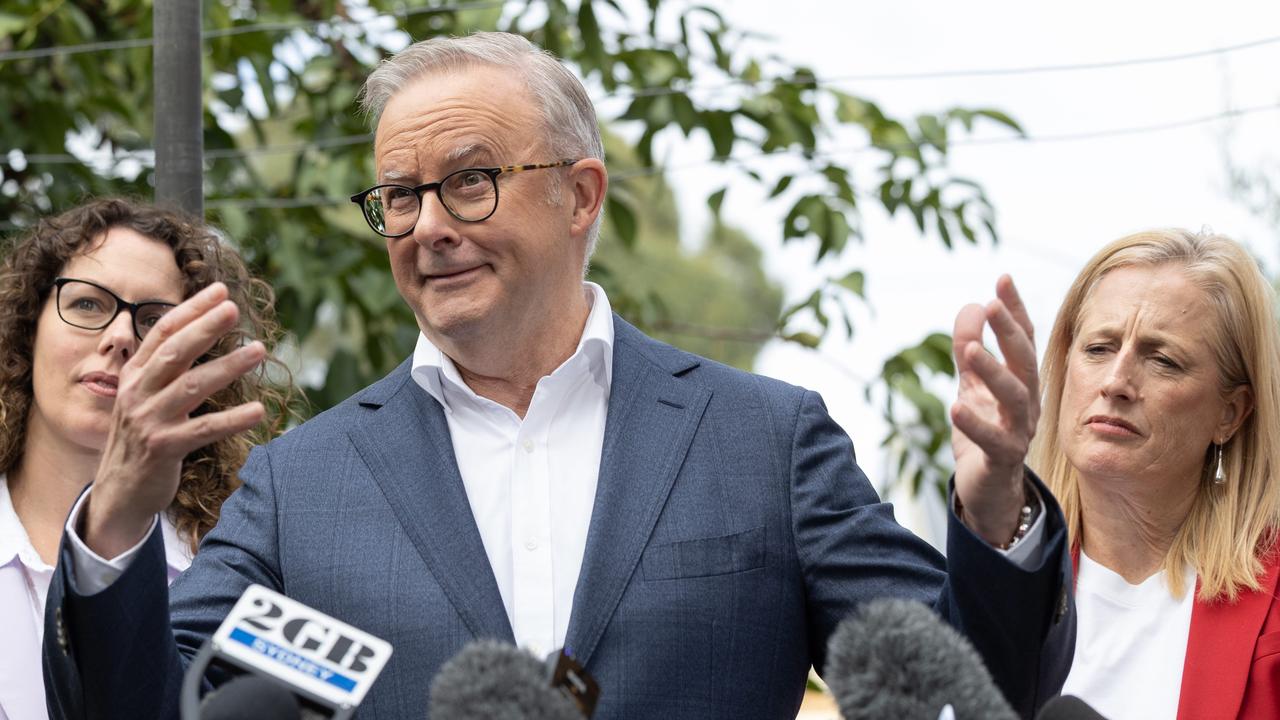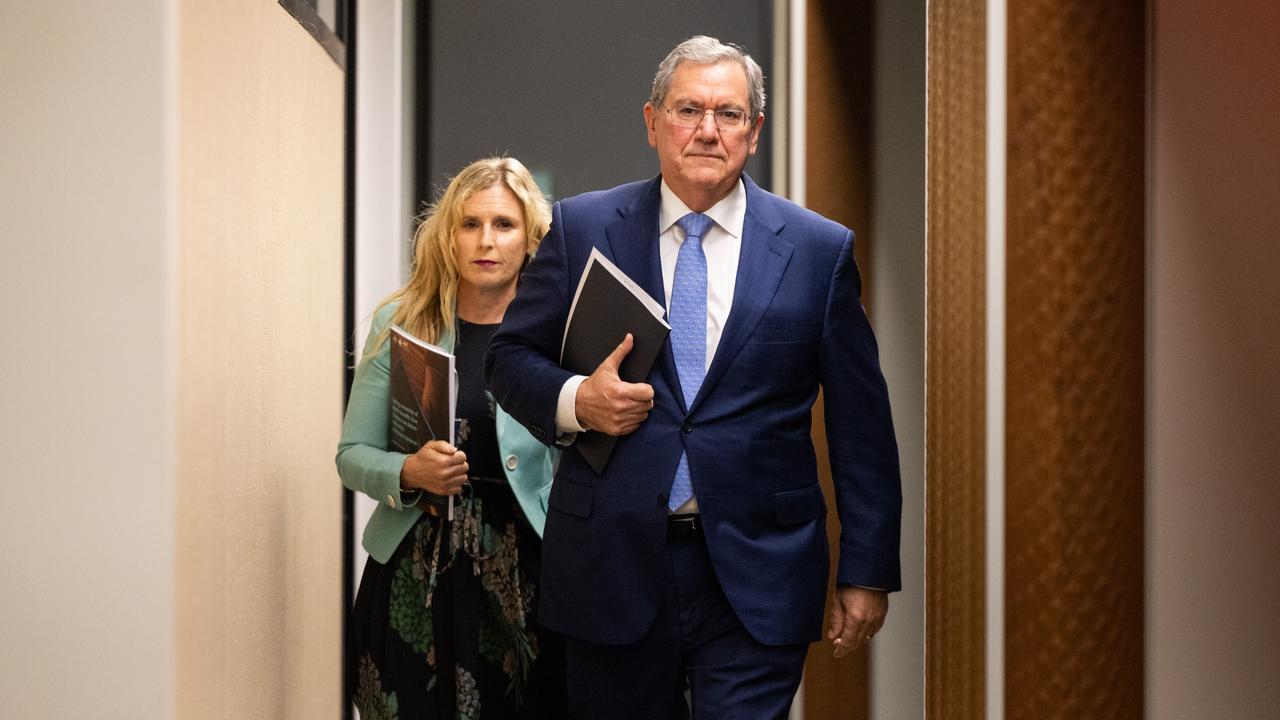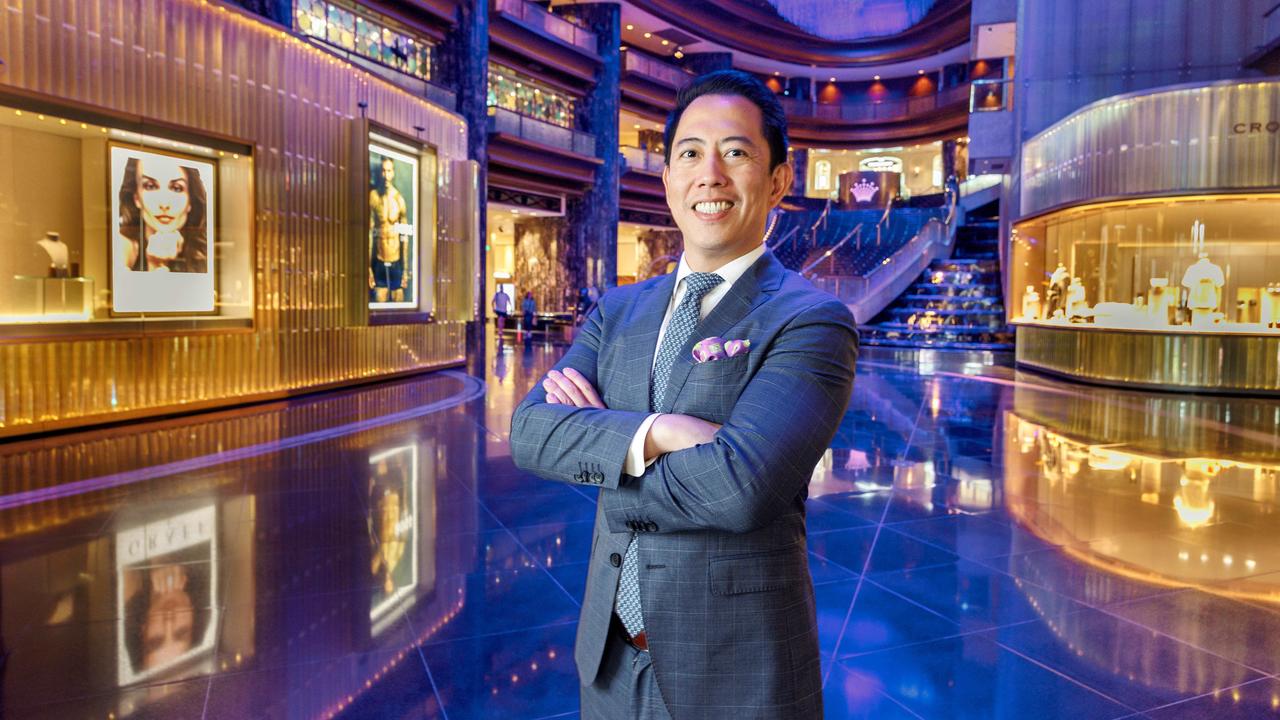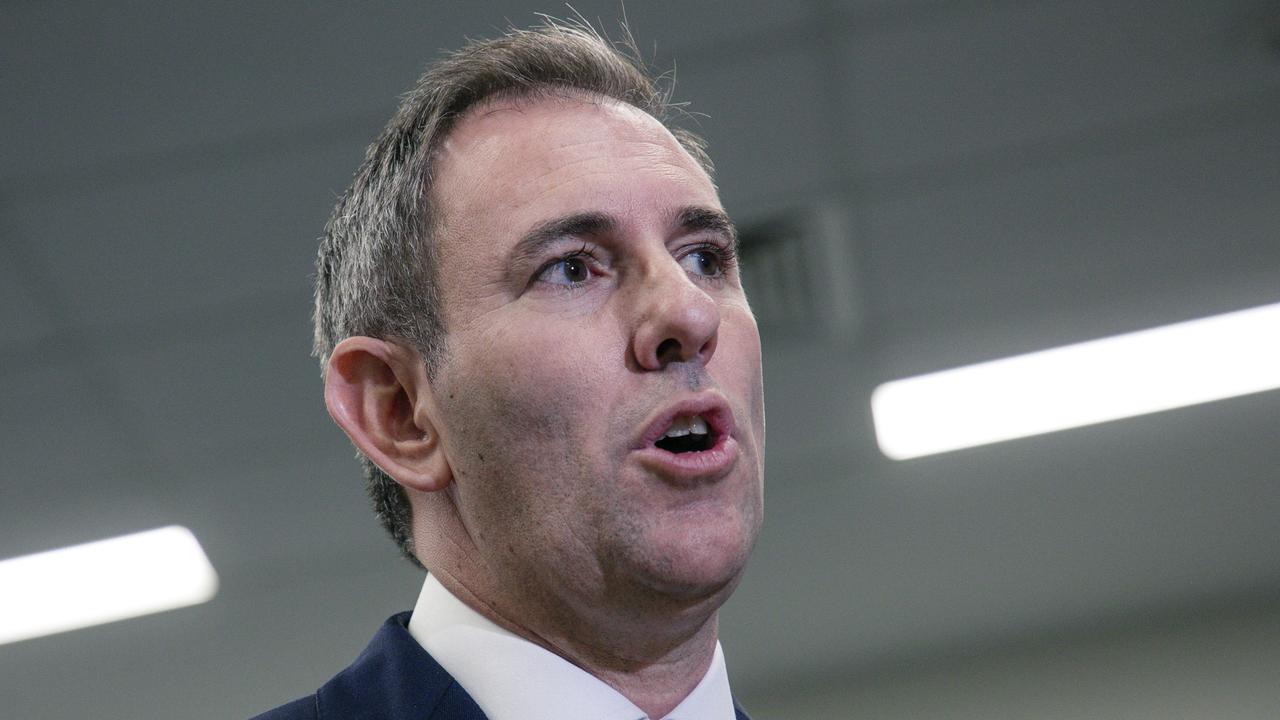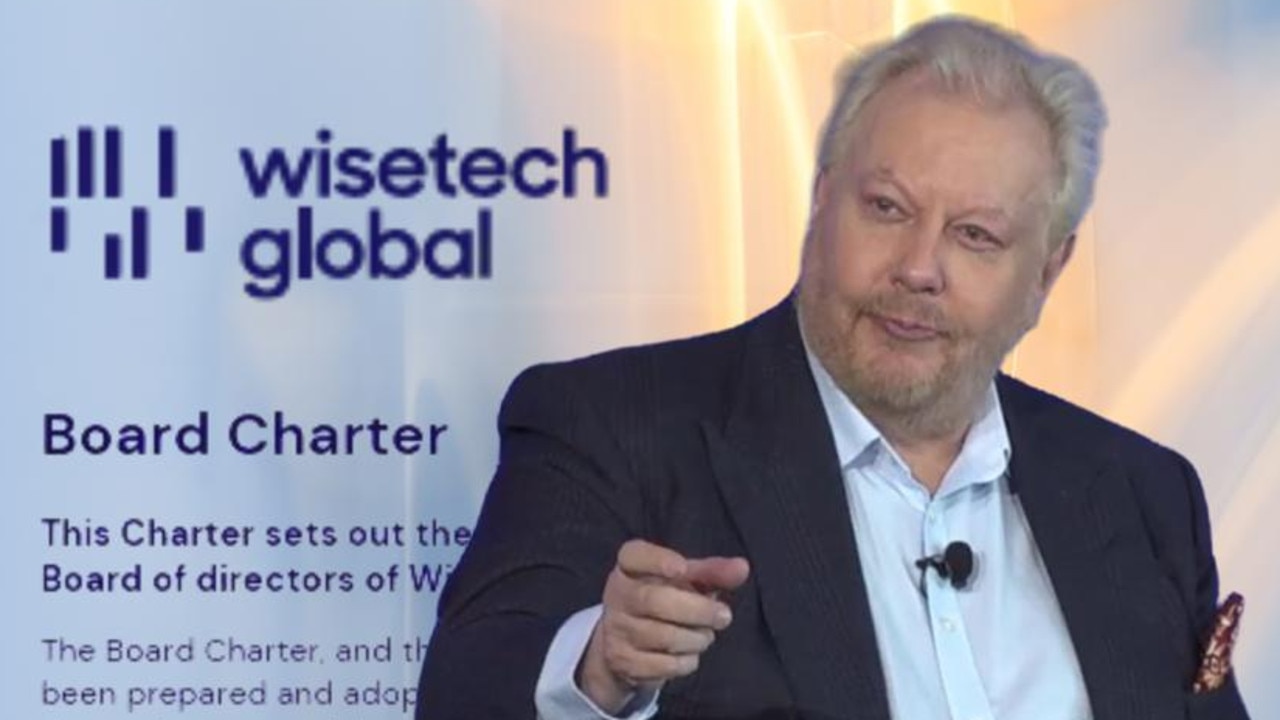WAM founder Geoff Wilson backs neither Labor nor the Coalition in an election devoid of a plan
At least Donald Trump ‘has a plan’, says veteran investor Geoff Wilson as he takes aim at Labor and the Coalition lacking grand visions for the economy or solving issues like home ownership.
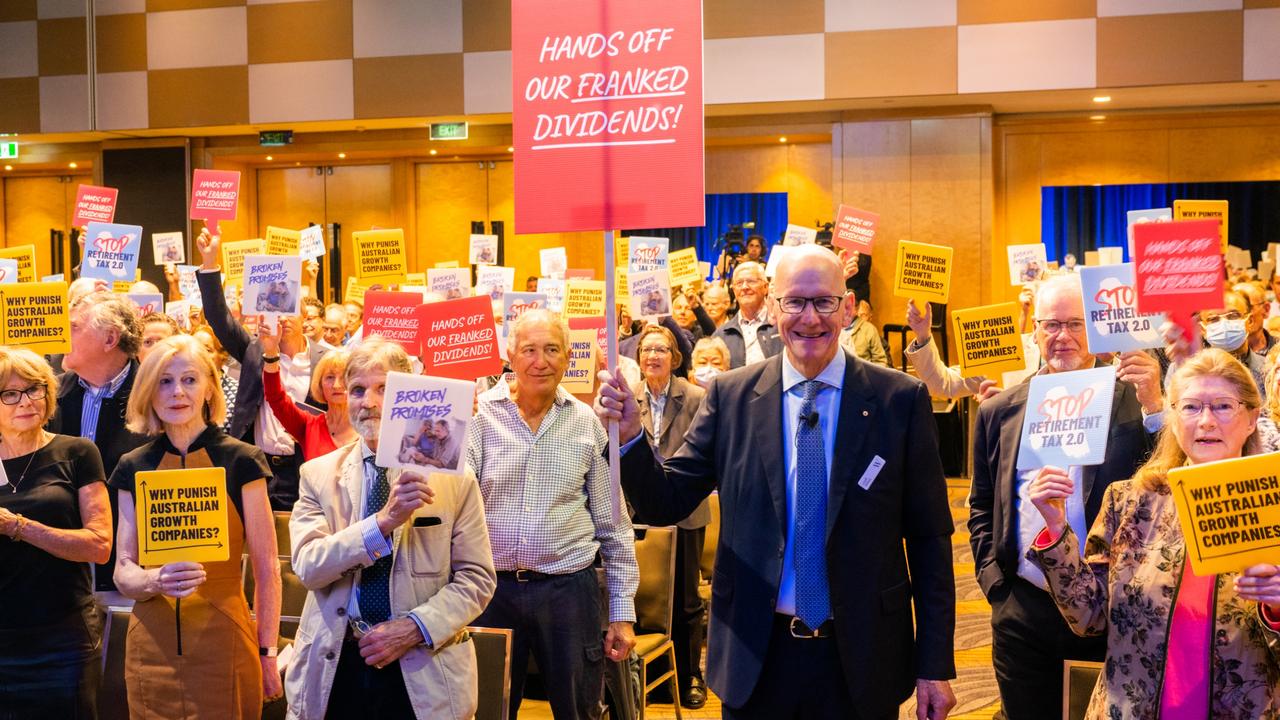
Business
Don't miss out on the headlines from Business. Followed categories will be added to My News.
Geoff Wilson, the veteran fund manager who helped skewer Bill Shorten’s prime ministerial aspirations in the 2019 election, is starting to get the itch about politics again.
Sitting in his expansive harbour-view office in Sydney’s financial district, the 67-year old is tightly coiled, whirring with ideas on the inside and calm on the outside.
The founder of Wilson Asset Management fears neither Labor nor the Coalition have put forward a decent plan for when Australia votes on May 3.
“Is there a big vision?” asks Wilson, gesturing in dismay. “It seems very reactive.”
Perhaps it’s his contrarian side coming through, but Wilson admires the fact that at least US President Donald Trump has set an agenda for his economy.
“I’m not saying it’s a good plan or a bad plan but at least it is a plan,” says Wilson.
It’s also a chaotic one: Trump has left allies reeling by questioning long-term security pacts and tearing up free-trade agreements with Canada, Europe and Australia. He has let Tesla founder Elon Musk loose on the American public service.
“If that was a company, you’d think, ‘that sounds like a reasonable strategy: increase revenue, reduce costs, then there’s more profit’. In this case it’s more GDP and then everyone’s living standard increases,” says Wilson. “In Australia we’ve got a real productivity problem.”
Wilson believes the entire tax system needs to be overhauled and he is frustrated by the lack of bold policy ideas he sees from either side, particularly with respect to helping young people into housing or forging a plan for “Big Australia.”
“I don’t know what the Labor plan is. Is it going to be the same as what we’ve had for the last three years? Let’s hope it’s not,” he said in an interview ahead of the 2025-26 federal budget which predicted 10 years of deficits. The budget is not expected to return to balance until 2035-36.
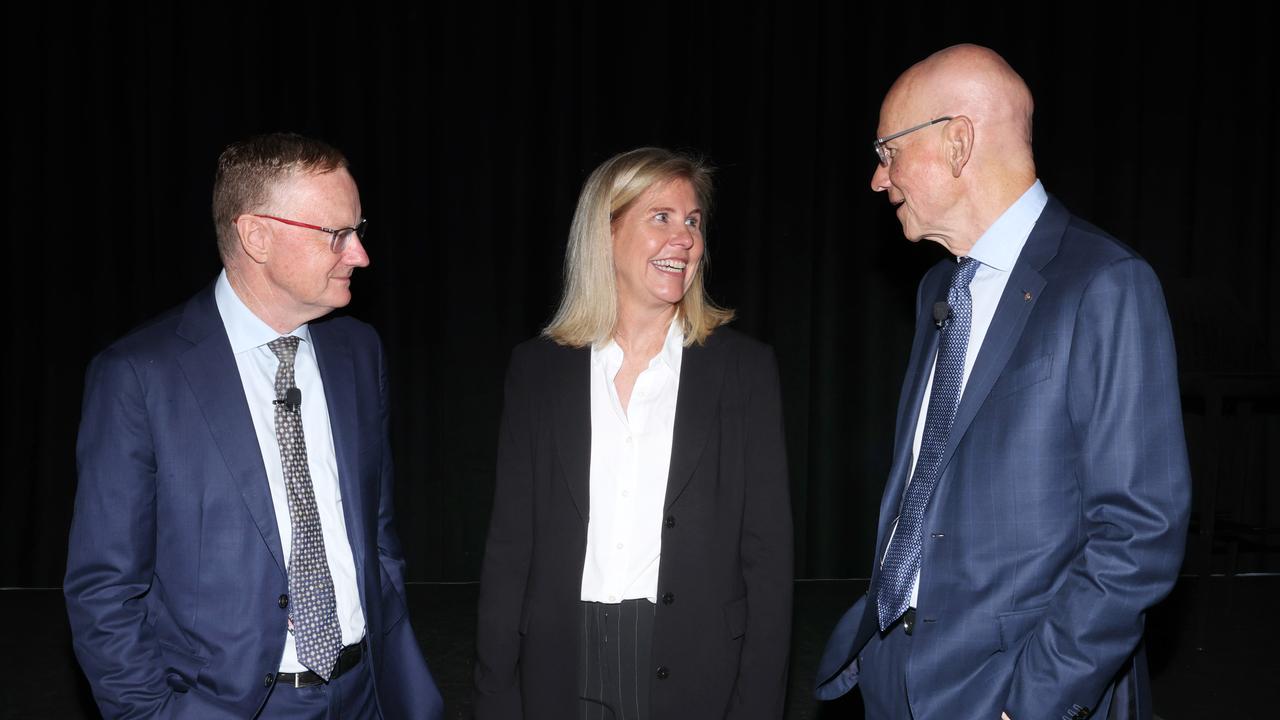
As for the Coalition, he believes there is too much riding on vague promises: “So let’s hope it will be much better articulated.”
Labor offered tax cuts of $5 a week from July next year and $10 a week from 2027-28 for Australians earning $45,000 or more. And Peter Dutton, who has ruled out tax cuts, will halve fuel excise and create an east coast gas reservation regime to drive down energy prices, the Opposition Leader said on Thursday night.
Wilson pays more attention to politics than most fund managers.
This is not the hum of a rich man complaining. Through his 130,000 retail shareholder base at Wilson Asset Management, he has a direct line to voters who own shares of WAM’s listed investment companies.
Wilson is probably the only fund manager to have helped down a potential PM as his campaign against Shorten’s plan to axe refunds on excess franking credits demonstrated. At least Shorten had a vision, Wilson says.
“You go back and look at Labor in the 2019 campaign – they had a plan,” he says. “The unfortunate thing is it wasn’t a good plan.
“That was one of the reasons why Shorten ended up losing the election. It was just illogical, unfair, bad policy.”
Shorten himself is not convinced. He thinks the franking credit campaign run by Wilson had “some, but not a critical” hit to his chances. “If I could hop in a time machine and go back to 2019 I might not have done franking credits,” admits Shorten.
He says the Liberal’s “pretty effective death tax scare campaign” and Greens candidate Bob Brown’s own goal scored by travelling to Queensland and turning potential Labor swing voters away were also damaging.
Indeed, Shorten thinks the financial services industry’s power is limited to individual pieces of legislation rather than influencing leadership.
“I think where finance can play a role is in between elections. If there’s particular legislation which is controversial or contested,” he says. “Ten years ago the finance industry was very formidable. So individual bits of legislation, superannuation legislation or financial planning advice legislation, that’s when the finance sector can have a very direct and pointed impact.”
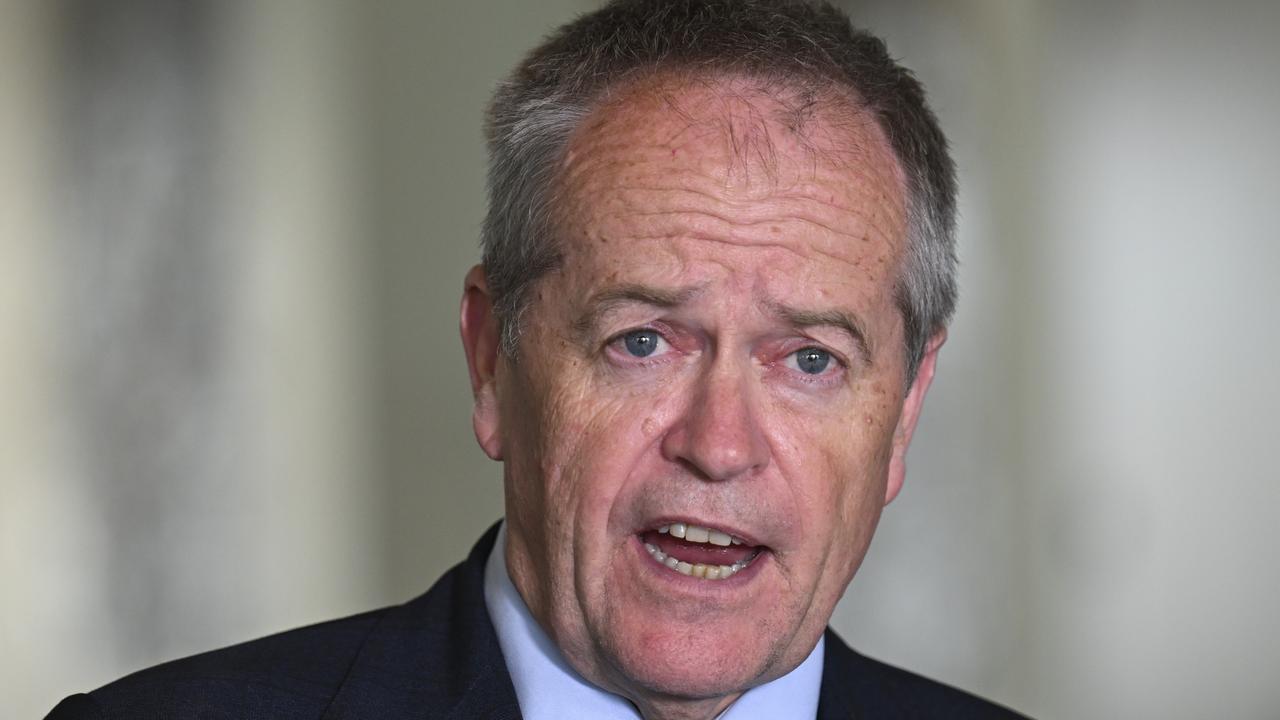
Wilson says the Labor Party would not let him register for a fundraising dinner held before the 2019 election, and then Shorten blocked his advances at a chance meeting some months later.
“I bumped into him … and asked him if he wanted to talk and he looked at me, said ‘no’ and just turned away,” recalls Wilson.
The Liberal candidate in Wilson’s seat of Wentworth, former management consultant and business owner Ro Knox, says she understands the financial position of retirees has a flow-on effect throughout the community.
“The campaign against Labor’s franking credit changes resonated because it wasn’t just retirees who would have been impacted – many Australians, including self-funded retirees, small investors, and families, relied on that income to pay school fees, support their children, or reinvest in their local communities.”
None of those issues should trouble Wilson, whose net worth is estimated to be more than $500m. His WAM is 28 years old and manages $6bn.
His other brainchild, the philanthropic Future Generation network of listed investment companies whose managers forego fees to donate money to causes like medical research and financial literacy, is a decade old.
These days, Wilson prefers to focus on the bigger picture and trust his executives with running the business. “I’m not spending all my time analysing companies and buying companies. There’s about 20 guys back in the office doing that, so I’m a bit more passionate.”
That leaves more time for ruminating on politics. He’s up in arms about legislation introduced more than a year ago by the government which strips publicly traded companies of the right to franking credits when share buybacks are undertaken. Unlisted companies are able to retain these credits, providing their shareholders a comparative tax benefit.
“Rather than offering incentives to list on the ASX, flawed government policy and the ever-increasing regulatory burden placed on public companies means many choose not to list at all,” says Wilson. “Those that do are placed at a significant disadvantage. The result will be the continued decline in the number of listed companies on the ASX.”
Will this kind of issue cut through with voters the way franking credits did?
“Perhaps not,” admits Wilson, though Knox says that in the seat of Wentworth, which has a large representation of executives and wealthy Australians, “many in the sector have raised concerns about over-regulation, industrial relations changes, access to capital and the need for policies which drive private sector investment and confidence”.
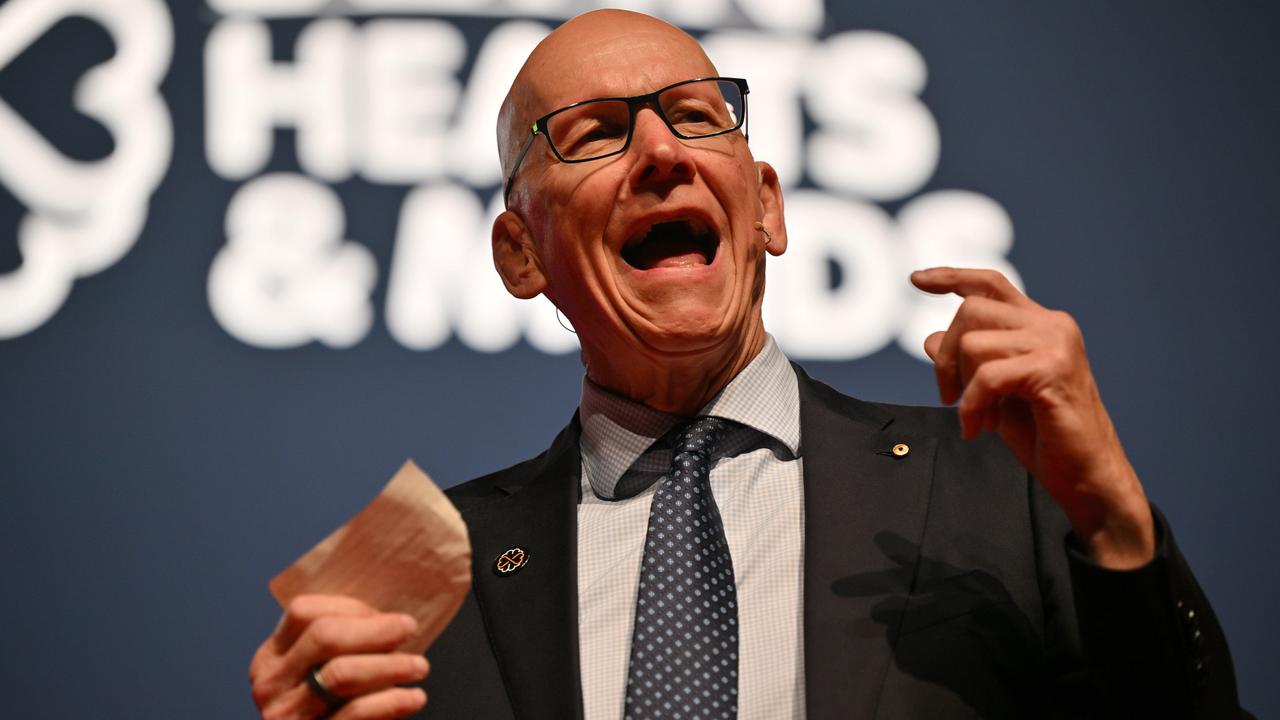
Housing is likely to be more decisive in the minds of voters, Wilson suggests. “Seventy per cent of Australians under 35 believe they will never own a home,” he says. “We are a $2 trillion economy and housing is a $10 trillion asset class. No country globally has a higher multiple and now we have locked out young Australians from owning a home.”
The fund manager and his wife Karen Greer have spent close to $50m on properties on Queensland’s Sunshine Coast. They own properties in Berrima in NSW and investment units in Sydney, on top of their two homes in neighbouring Double Bay.
Wilson says governments need to change density laws to create more supply. “Then in the outer ring and metropolitan areas, provide taxation incentives for new builds that give capital deductions for capital spend for the under 35-year olds. Don’t give cash incentives that effectively increase prices, make the benefits at a personal taxation level for the young because then it’s not a transfer payment to builders and allow deductions for the capital expenditure on primary residences up to a set cap.”
Even in his ritzy seat of Wentworth, housing pain is being felt.
“Despite Wentworth’s reputation, cost-of-living pressures and mortgage stress remain major concerns,” says Knox. “People are feeling the squeeze from historically high interest rates, which are making mortgage repayments increasingly difficult, particularly for families, first-home buyers and those who are significantly leveraged. Housing affordability is a growing challenge, with both buyers and renters struggling to keep up with rising prices.”
The obvious question is whether Wilson will influence the 2025 federal election. He admits politics will start taking up a bigger portion of his time, with it currently accounting for about 3 per cent, his wife and New York-based daughter 30 per cent, and work absorbing the rest.
“I realised how important it is to have a voice,” says Wilson, not ruling anything in or out. “If you believe that something is unfair or illogical then how important it is to stand up for it.”
His wife is “very passionate” too, he says. A nutritionist by trade, Greer was in Melbourne discussing the food pyramid taught to children at school. “She thinks it needs to be turned upside down,” says Wilson.
The WAM offices are filled with snacks such as almonds and cashews, juices and supplements.
Think about the health of the economy, Wilson implores.
“The government has a sole task – to create an environment where all Australians can achieve their potential,” he says.
“This means facilitating innovation and investment with a safety net for the truly needy.”
More Coverage
Originally published as WAM founder Geoff Wilson backs neither Labor nor the Coalition in an election devoid of a plan





